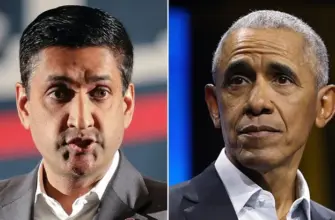Debunking Claims of Voter Disenfranchisement: The SAVE Act and Married Women
A recent wave of accusations suggesting Republicans are attempting to curtail voting rights through the Safeguard American Voter Eligibility (SAVE) Act has been circulating, with claims that it will disproportionately impact married women. These assertions, largely amplified by Democratic figures, require a closer examination.
The core of the controversy stems from the SAVE Act, which aims to strengthen voter integrity by requiring proof of citizenship for federal elections. Acceptable forms of identification include:
- A REAL ID-compliant driver’s license
- A valid U.S. passport
- A military ID
The argument made by Representatives like Eric Swalwell and former Secretary of State Hillary Clinton suggests the Act will prevent millions of women who have changed their name after marriage from voting. As Clinton stated, “The House just passed the Republican voter suppression measure that threatens voting access for millions of Americans, including 69 million women whose married names don’t match their birth certificates.“
However, this perspective overlooks crucial context. The complexities surrounding REAL ID compliance are largely a result of past decisions by some states to issue driver’s licenses without sufficient verification processes—a situation that necessitates enhanced identification requirements for all individuals, regardless of marital status.
The implication that married women are somehow incapable of securing valid identification is frankly absurd. Consider the common scenarios of daily life:
- Married women routinely drive vehicles, necessitating a driver’s license.
- Many married women frequently travel internationally, requiring passports.
The suggestion that these individuals would be unable to navigate these processes is both insulting and demonstrably false.
Moreover, the widespread support for voter ID laws – with polls indicating up to 80% of Americans favoring them – highlights a desire for secure elections, a sentiment seemingly ignored by those who champion this narrative.
The Democrats’ swift and unified response, reminiscent of recent instances of synchronized messaging, demonstrates a pattern of prioritizing identity politics over practical solutions. This approach echoes previous controversies where concerns about potential negative consequences were used to derail policy initiatives—a tactic that has been dubbed “disparate impact ad absurdum.”
Furthermore, the claim that this law will disproportionately disadvantage married women is particularly perplexing given their voting patterns. Recent data indicates that married women tend to lean towards Republican candidates; in fact, some analyses suggest a more substantial victory for Republicans and Donald Trump in 2024 if full voter participation occurred.
Ultimately, the claims surrounding the SAVE Act and its supposed impact on married women are not only inaccurate but also serve as a distraction from the genuine purpose of the legislation: to safeguard the integrity of our elections. The suggestion that 70 million American women are unable to obtain valid identification is simply untenable.
As Representative Swalwell himself acknowledges, there are approximately 70 million married women in the United States who may have taken their spouse’s last name – a group fully capable of acquiring necessary identification.
“Get out there and vote, married ladies. There is literally nothing stopping you.”







